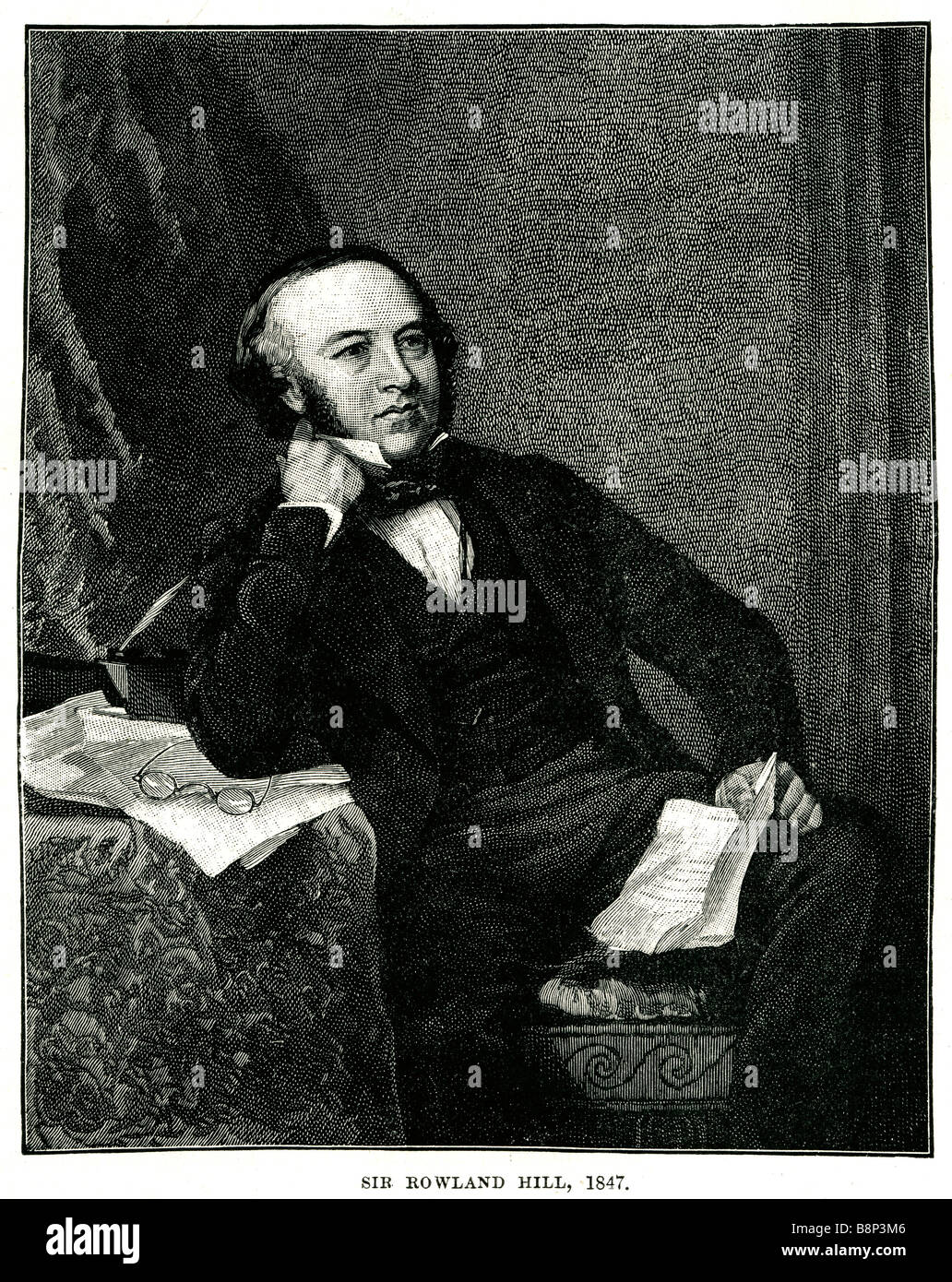sir rowland hill 1847 British teacher penny postage postal social reformer

Image details
Contributor:
19th era / Alamy Stock PhotoImage ID:
B8P3M6File size:
53.2 MB (6 MB Compressed download)Releases:
Model - no | Property - noDo I need a release?Dimensions:
3844 x 4840 px | 32.5 x 41 cm | 12.8 x 16.1 inches | 300dpiMore information:
Sir Rowland Hill KCB, FRS (December 3, 1795 - August 27, 1879) was a British teacher and social reformer. He campaigned for a comprehensive reform of the postal system, based on the concept of penny postage, and later served as a government postal official. He is usually credited with originating the basic concepts of the modern postal service, including the invention of the postage stamp. Hill interested himself in a reform of the postal system, as well.[9] In the 1830's at least 12½% of all British mail was conveyed under the personal frank of Peers, dignitaries and Members of Parliament, while censorship and political espionage were conducted by postal officials. Fundamentally, the postal system was mismanaged, wasteful, expensive and slow. It had become inadequate for the needs of an expanding commercial and industrial nation. There is a well-known story, probably apocryphal, about how Hill gained an interest in reforming the postal system -- that he noticed a young woman too poor to redeem a letter sent to her by her fiancé. At that time, letters were normally paid for by the recipient, not the sender. The recipient could simply refuse delivery. Frauds were commonplace; for example, coded information could appear on the cover of the letter; the recipient would examine the cover to gain the information, and then refuse delivery to avoid payment. Each individual letter had to be logged. In addition, postal rates were complex, depending on the distance and the number of sheets in the letter. Richard Cobden and John Ramsey McCulloch, both advocates of free trade, attacked the policies of privilege and protection of the Tory government. McCulloch, in 1833, advanced the view that "nothing contributes more to facilitate commerce than the safe, speedy and cheap conveyance of letters." Hill's famous pamphlet, Post Office Reform: its Importance and Practicability, was privately circulated in 1837. The report called for "low and uniform rates" according